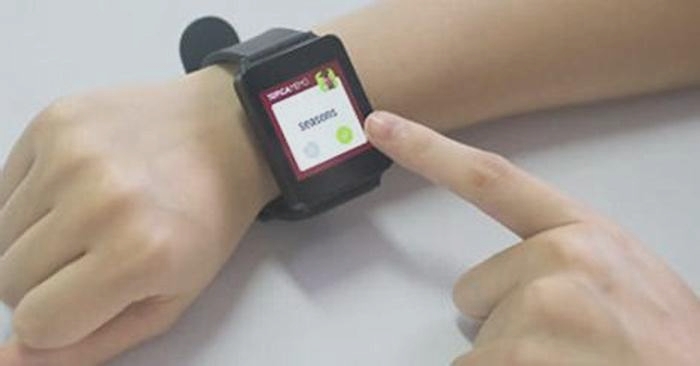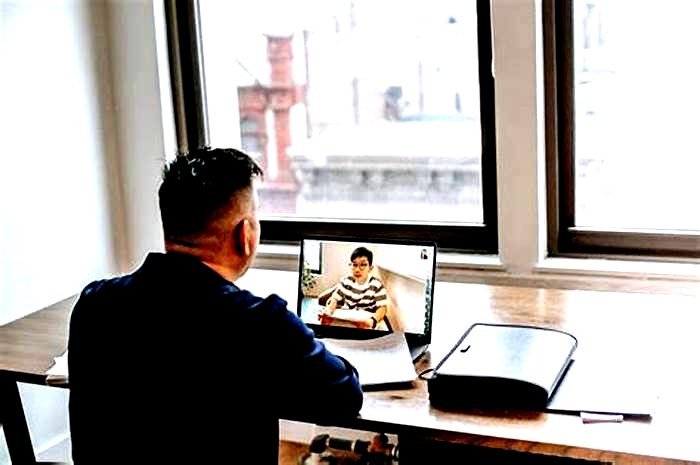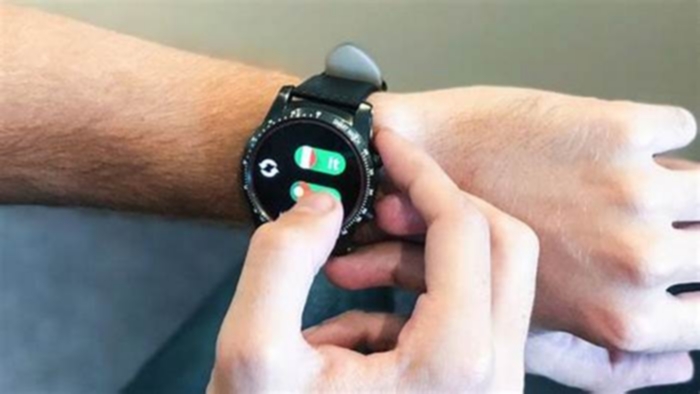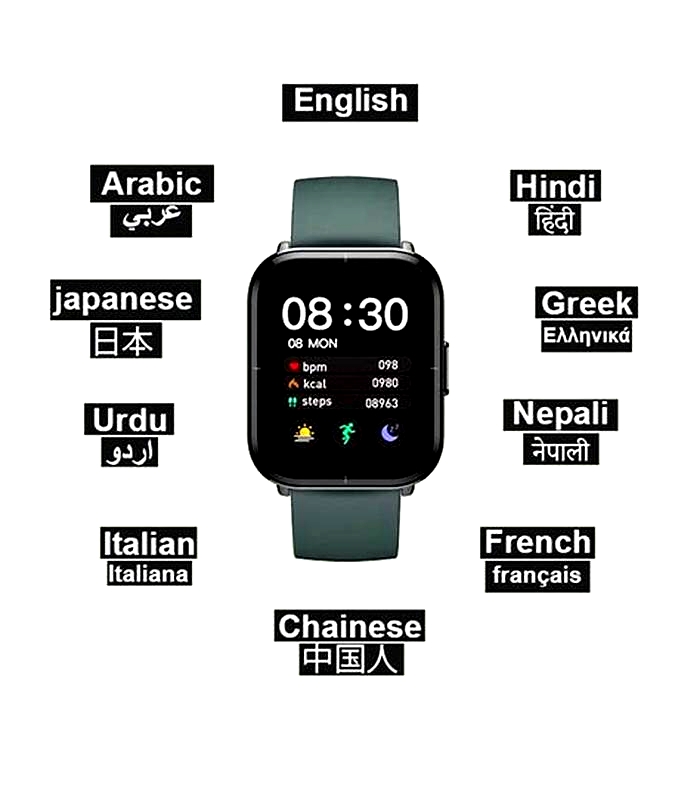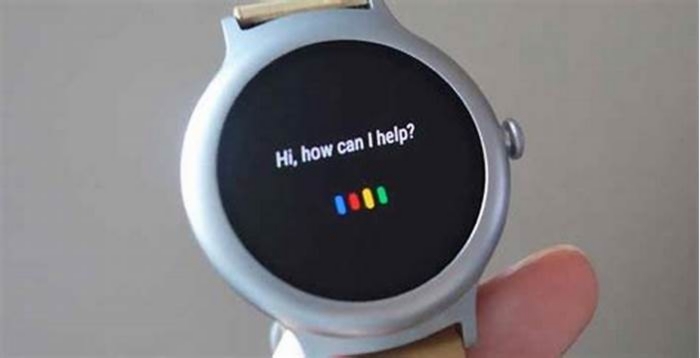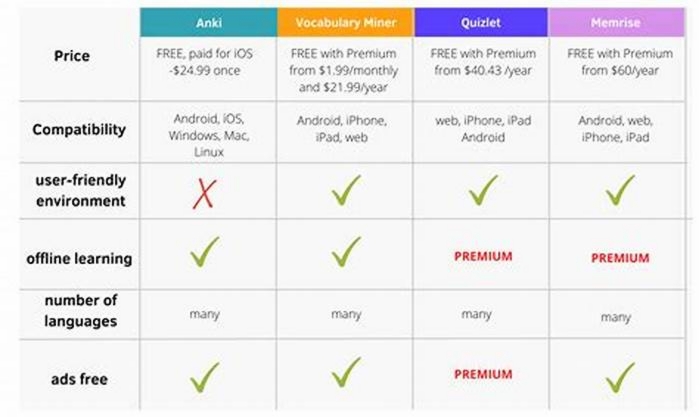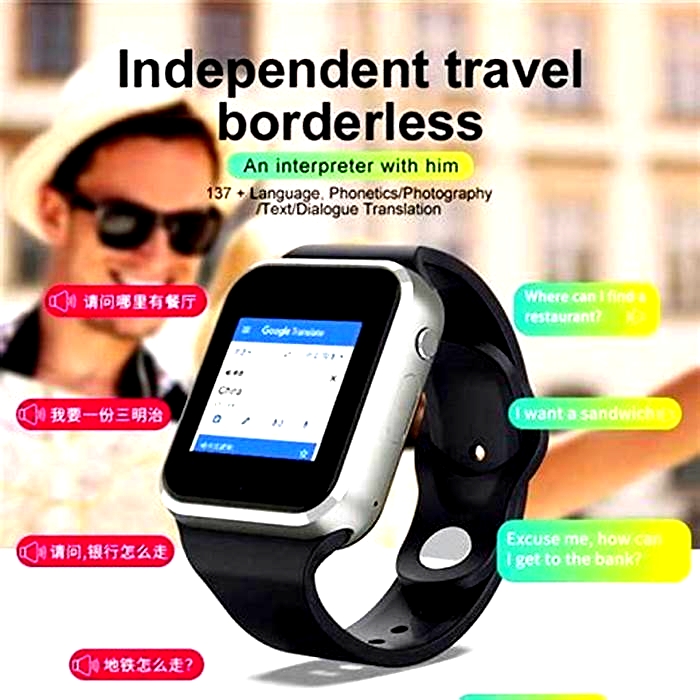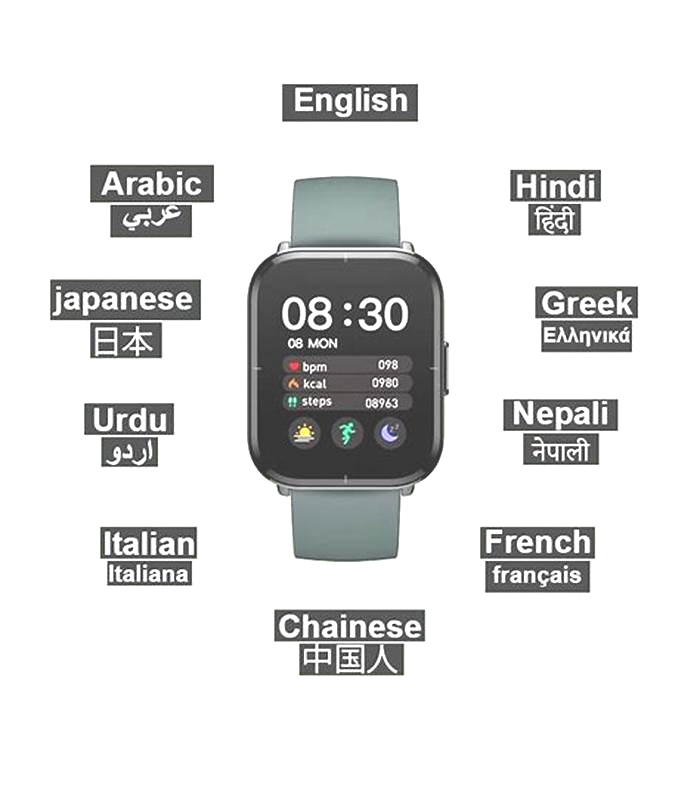How to Use Your Smartwatch for Language Learning with Flashcards
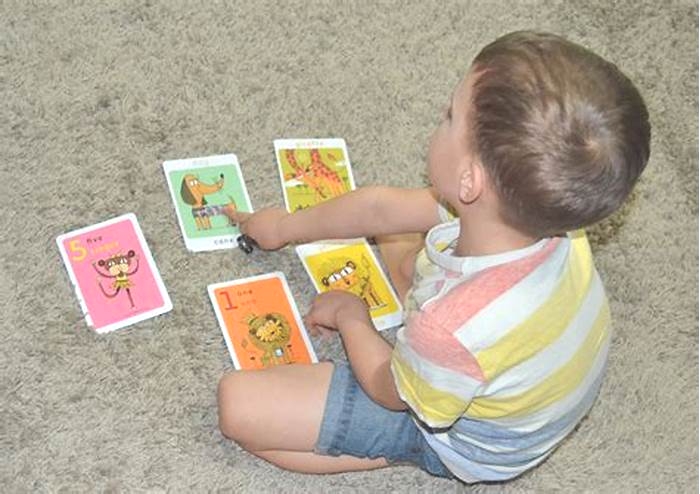
DuoCards
Improve your language with our flashcard app.
Enjoy learning from videos, movies or articles.
Features
Learn a language using flashcards
Save the words from your phone or using Chrome Extension.
Learn by watching videos and movies in your target language
Use integrated translator
Use Effective Spaced Repetition method integrated translator
4.8 rating out of 5 on Google Play and App Store
What users say about our app
The app is probably the most useful on the market right now, it has an algorithm that is really working for me, it allows images and good translations for phrases and words (few apps do that). And, it has a very nice design.
Great app, simply the best of the best, and you can immediately translate the movie and click on the word, the translator is super, and words are easy to learn + that you can learn two different languages, thank you very much.
Thanks for such a great app!For me, its super cool and convenient for learning languages.I also shared it with my friends and they are no less satisfied
I love the wayyouguys put an amazing effort into helping people who want to learn new languages, its seriously one of the best apps I have ever used <3Thankyouso much!
Study new words and phrases you pick from thematic sets of cards
These sets are created by the community, reviewed by us and sorted by popularity.
Teachers can easily create public or private sets
Save your own phrases using integrated translator
with image, example of usage and pronunciation
Learn any foreign language by watching videos and reading articles
and saving new words and phrases as flashcards
Browse our library of study sets, videos and articles
Great tool for teachers or study groups!
Save your own vocabulary and useful phrases into sets of cards and share it with anyone!
Do you have questions?
Contact our support team. We will be happy to help you!
5 Useful Apps for German Flashcards to Help Improve Your Vocabulary

5 Useful Apps for German Flashcards to Help Improve Your Vocabulary
Theres a reason why young students are encouraged to make flashcards: because this method actually works to help memorize something.
Thats why, if you are learning German, we strongly recommend that you make a set of flashcards to ensure that you master new German vocabulary.
Making these by hand can be cumbersome and time-consuming, which is why well be introducing some amazing flashcard apps thatll make vocab practice slick as ever.
Contents
Download: This blog post is available as a convenient and portable PDF that you can take anywhere. Click here to get a copy. (Download)
Tips for Making the Most out of Your Flashcard Studying
How can you ensure that you learn the vocabulary from your flashcards, and integrate it into your daily life?
- Learn 10new flashcards every day. Ten is the perfect number: just enough so you can keep moving forward with the language, but not so much that you give up on your flashcards on day three.
- Dont put your mother language on the flashcards. Try to make German-to-German flashcards, and describe the word using German words you already know. This will decrease your dependence on your native language.
- Say the words out loud. Its crucial to say your flashcard words out loud. Not only will speaking help you memorize the words, but it will also help you with pronunciation and with integrating the words into your spoken vocabulary.
- Use pictures ashelpful memorization devices.Maybe you cant think of a way to describe your German word using other German words, or want a funny image to help you remember a word. For both of these reasons, drawing pictures can be a great way to help you memorize your German words.
Flashcard Apps to Learn German Vocab in a Flash
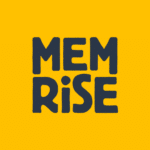
Cost: $ limited, free version available Available on:Web|iTunes|Google Play
Key features:
- Memrise is a website and app that uses image-based flashcards to help you learn languages and vocab. You cantake courses in any given level of German (the site also offers other languages and topics) or to create your own courses.
- With Memrises premade courses, you can easily work your way through the most important German vocabulary at any level. Flashcards come with audio, plus you can choose which meme/image appears for each.
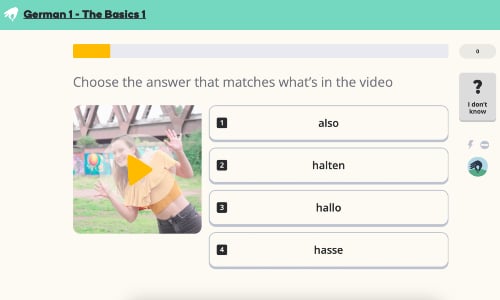
- The site and app present users with these vocab setsusing the spacing method, which presentsthe same information repeatedly at intervals, a technique proven to hammer the information home. New words on Memrise begin as seeds, and the site will tell you as soon as words need watering.
- Memrise also encourages users to make their own courses and share them with the community, though note that you can onlymakecourses on the website version, not the appbut any course made on the website can then be used on the app.
Cost: $$ free trial available Available on:Web|iTunes| Google Play
Key features:
- FluentU isnt just a flashcard app, but its video-enhanced flashcards are a central part of its learning method. The program is an immersive one, letting learners watch authentic German videos like movie trailers, music videos, vlogs, commercials and other native German media.
- These videos are accompanied by tools to make them accessible to anyone along the journey to language mastery. These include a key words bank, downloadable transcripts and a post-video comprehension quiz.
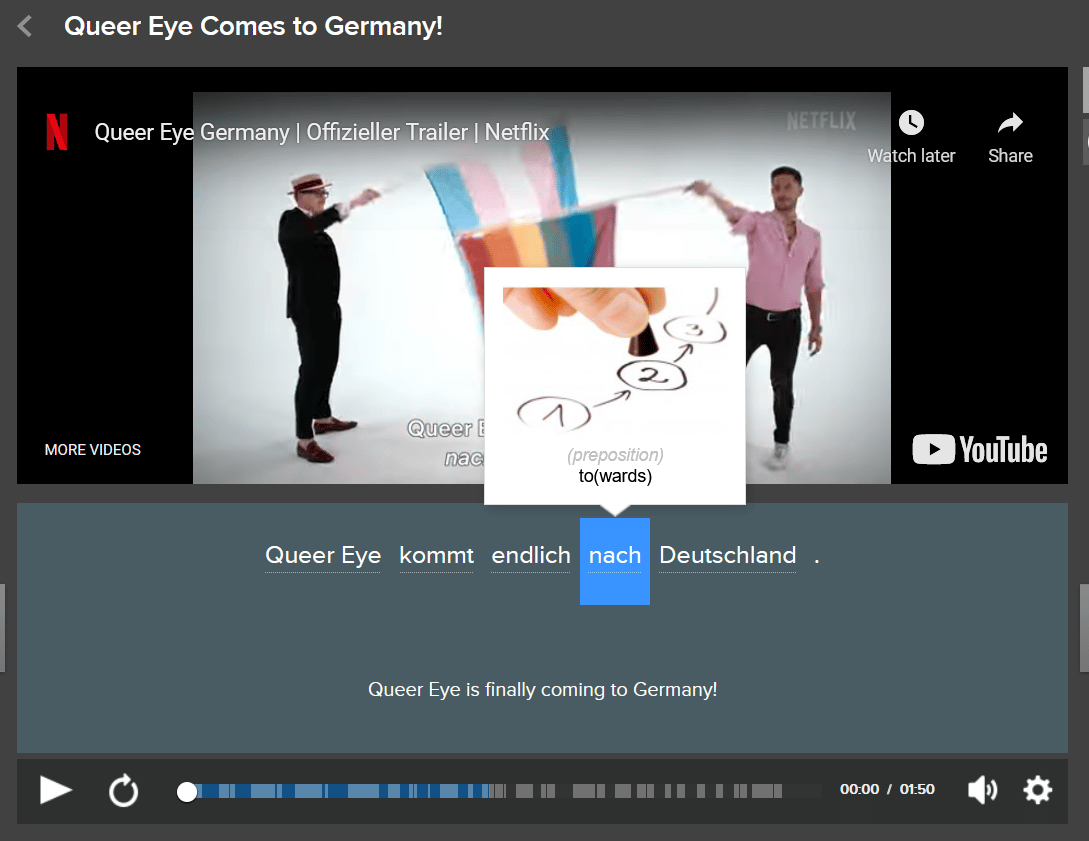
- But the most crucial part of FluentU is its subtitles and flashcard system. Each video has dual-language subtitles. You can turn both the English and the German captions on or off at will, but having the German subtitles on gives you an additional tool to use.
- Thats because subtitles are interactive: If you come across a word youre not sure about, hover your mouse over it for a quick definition or click on it to see its flashcard. These definition cards are contextualyoure shown the correct meaning for that specific use of the wordand you can add these flashcards to decks of your making directly from the video.
- In addition to flashcard sets from videos, there are other pre-made German flashcards, like common nouns, basic conjugation, question words and more.
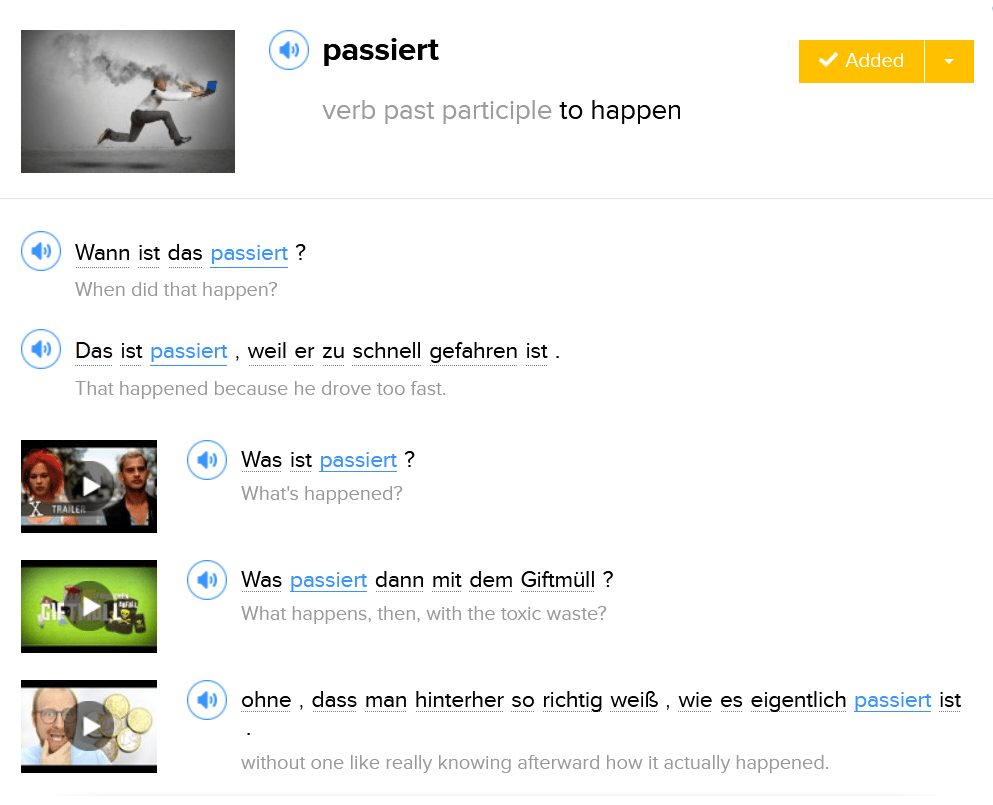
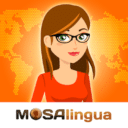
Cost: $$ limited, free version available Available on: Web | iTunes | Google Play
Key Features:
- MosaLingua is a handy little flashcard app that comes with pre-made cards for useful words and phrases. It includes audio pronunciations, native dialogues, and categories and subcategories you can explore on various subjects like eating, transportation, flirting and more.
- The philosophy behind the app is centered around a) learning the most useful parts of the language first and b) not wasting time studying things you already know (this last one being achieved through SRS technology).
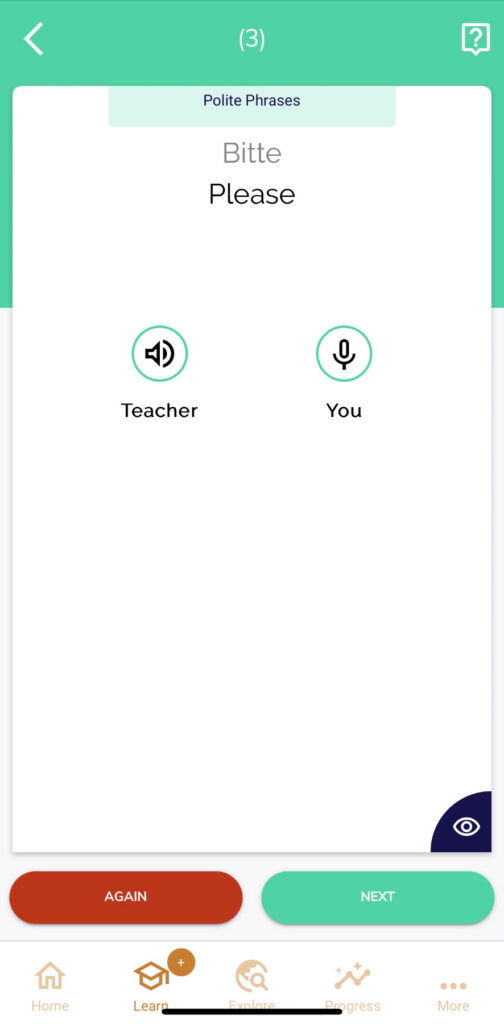
- What really makes MosaLingua stand out, though, is that in addition to the mobile version of the app, you can use the web version to conveniently translate words and phrases you find in reading material, then add these words and phrases to your flashcards across all devices. This gives you the advantage of being able to customize your learning while still making the process of learning easier.
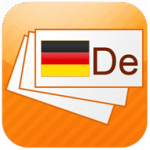
Cost: $ limited, free version available Available on: Google Play
Key features:
- German Flashcards by BH Inc. is an app that provides users with a set of German vocabulary flashcards containing image, sound and text, which help you memorize information using different senses. And in addition to flashcards, there are a variety of learning modes: study, slide show, matching, memorize, quiz, spelling and re-arrange.
- You can make your own flashcards or use the 4,000+ pre-made German vocabulary flashcards that cover nine main categories.
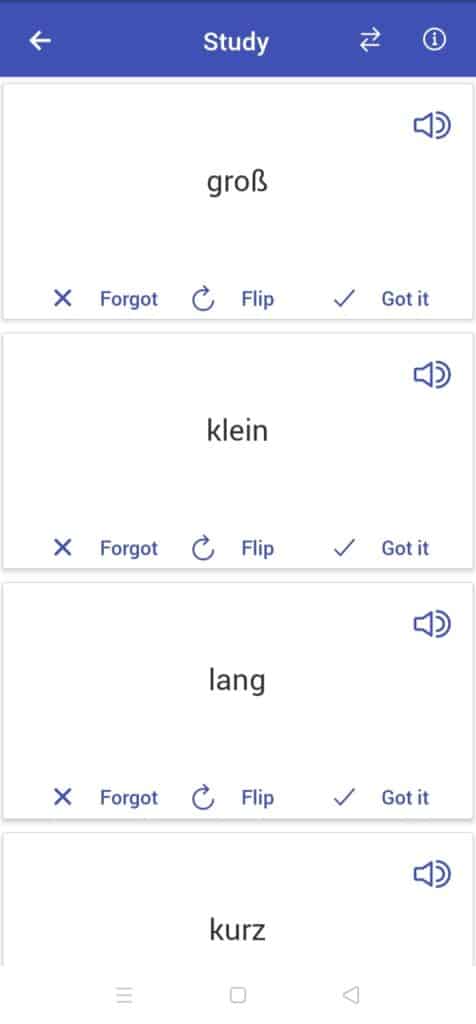
- Games on thisGerman Flashcards app can be played on your own, with friends orwithrandomusers.Theres a handy stats section too, which lets you view your learning progress. Premium features include text-to-speech, the ability to download unlimited flashcards for offline study, and customizing text and background colors on cards.
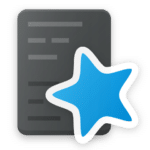
Cost: Free Available on: Google Play
Key features:
- AnkiDroid is an Android app for the wildly popular spaced repetition software Anki. The app helps you remember vocabulary by testing you on words just before youre about to forget them, which improves your ability to retain them.
- You can create your own personalized deck if you want to choose the exact vocabulary you learn, or you can download free decks that will give you a good base of German vocabulary.
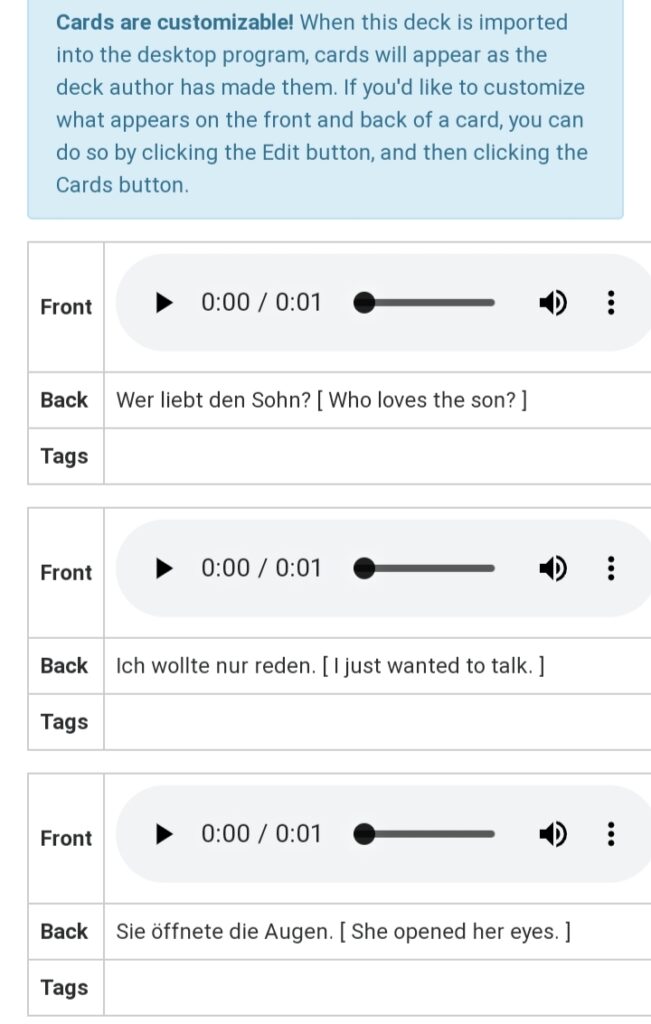
- The app supports the use of text, images and sound on flashcards, meaning youll be able to customize them however you want.
- Youll also be able to keep an eye on how youre improving with the progress widget.
No matter which method you choose, if you get started on your flashcard collection today, youll soon have a built-in way to memorize the German words that you encounter in your reading, lessons or everyday life.So what are you waiting for?
Download: This blog post is available as a convenient and portable PDF that you can take anywhere. Click here to get a copy. (Download)
Rebecca Thering learned to speak Spanish and French while living abroad in Spain, South Korea, and France. She has taught English as a second language in various capacities since 2009. From her current home in Arizona, Rebecca is now learning languages of the construction trades and the healing arts, while sharing heartfelt creations on her personal site.
How To Make Flashcards For Language Learning
Are you struggling to find an effective way to learn a new language? Look no further! In this blog post, I will teach you how to make flashcards for language learning. Flashcards are a powerful tool that can enhance your language learning experience and help you remember new vocabulary words and phrases more easily. Whether youre a beginner or an advanced learner, creating your own flashcards can be a fun and interactive way to improve your language skills.
Why Language Learning Flashcards Are Crucial
Before diving into the creation process, lets briefly discuss why language learning flashcards are a must-have in your study arsenal.
- Active Engagement: Flashcards require you to actively engage with the material. Instead of passively reading a textbook, youre constantly testing your knowledge.
- Spaced Repetition: Flashcards utilize spaced repetition, a scientifically proven technique that helps you remember information more effectively by revisiting it at specific intervals.
- Visual and Verbal Learning: Flashcards cater to both visual and verbal learners. You see the word or phrase on one side and recite the translation or meaning on the other.
- Portability: Flashcards are portable and can be taken anywhere. Whether youre waiting for a friend or commuting on public transport, you can squeeze in some language practice.
Now that you understand the importance of language learning flashcards, lets move on to creating them.
Creating Your Language Learning Flashcards
1. Gather Your Materials
Before you begin, ensure you have the following materials ready:
- Index cards or flashcard app
- Colored pens or markers (optional but helpful)
- A reliable language learning resource
2. Choose Your Vocabulary
Decide on the specific vocabulary or phrases you want to learn. Start with basic words and phrases if youre a beginner, and gradually increase the complexity as you progress.
3. Format Your Flashcards
On one side of the flashcard, write the word or phrase in the target language. On the other side, write the translation or meaning in your native language. Use clear, legible handwriting or fonts if youre using a digital flashcard app.
4. Use Visual Aids
If applicable, include simple drawings or symbols that represent the word youre trying to learn. Visual aids can reinforce your memory.
5. Practice Regularly
Consistency is key when using flashcards. Set aside a specific time each day for flashcard practice. Review old cards while adding new ones to your collection.
6. Implement Spaced Repetition
As you review your flashcards, prioritize the ones you struggle with. Spaced repetition apps can help you determine when to revisit specific cards for optimal retention.
7. Test Yourself
Regularly test your knowledge by covering one side of the flashcard and trying to recall the information. This active recall reinforces your memory.
8. Track Your Progress
Keep a record of your progress by marking each flashcard as mastered or in need of further practice. This tracking system helps you focus on your weaknesses.
How To Make Flashcards For Language Learning Final Thoughts
So there you have it, a simple and effective way to create flashcards for language learning. By following these steps, you can enhance your vocabulary and improve your language skills in no time. Remember, consistency is key, so make sure to review your flashcards regularly. With dedication and practice, youll be speaking a new language fluently before you know it!
How To Make Flashcards For Language Learning FAQ
What are the benefits of using flashcards for language learningUsing flashcards for language learning offers several benefits. Firstly, they help improve vocabulary retention by reinforcing the connection between words and their meanings. Secondly, flashcards provide a convenient and portable study tool, allowing learners to practice anytime, anywhere. Lastly, the active recall involved in using flashcards enhances memory and speeds up the learning process.
How can you effectively organize your flashcards for efficient language learning?To effectively organize your flashcards for efficient language learning, start by categorizing them based on different language skills such as vocabulary, grammar, and phrases. Then, create separate decks or sections within your flashcard app or physical flashcard box for each category. Additionally, consider using color-coding or labeling techniques to easily identify specific topics or difficulty levels. Regularly review and revise your flashcards to reinforce your learning and ensure maximum efficiency.
What are some creative ways to make flashcards engaging and interactive?To make flashcards engaging and interactive, consider incorporating visuals such as images or diagrams that help illustrate the concept being learned. Additionally, you can add interactive elements like flaps or tabs that reveal additional information when lifted. Another idea is to turn flashcards into a game by creating a matching activity or incorporating a timer to add a sense of urgency. By utilizing these creative techniques, you can enhance the learning experience and make flashcards more enjoyable for learners.
Are there any specific techniques or strategies to optimize flashcard usage for language acquisition?Yes, there are several effective techniques to optimize flashcard usage for language acquisition. Firstly, it is important to regularly review and revise the flashcards to reinforce memory retention. Additionally, incorporating visual aids, such as relevant images or diagrams, can enhance the effectiveness of flashcards. Lastly, actively engaging with the flashcards through self-quizzing or using them in conversation practice can further enhance language acquisition.
How do you determine the most important vocabulary or phrases to include on your flashcards?To determine the most important vocabulary or phrases to include on your flashcards, start by identifying the key concepts or topics you want to focus on. Then, review your study materials, such as textbooks or lecture notes, and highlight the words or phrases that are frequently mentioned or seem essential to understanding the subject matter. Additionally, consider consulting online resources or language learning apps to gather commonly used vocabulary in the language you are studying.
Can flashcards be used for more advanced language learners, or are they primarily for beginners?Flashcards can definitely be used by more advanced language learners to enhance their vocabulary and language skills. While they are commonly associated with beginners, flashcards can be adapted to suit the needs of learners at any level. Advanced learners can use flashcards to reinforce complex grammar rules, idiomatic expressions, and specialized vocabulary. Incorporating flashcards into their language learning routine can help advanced learners deepen their understanding and retention of the language.

